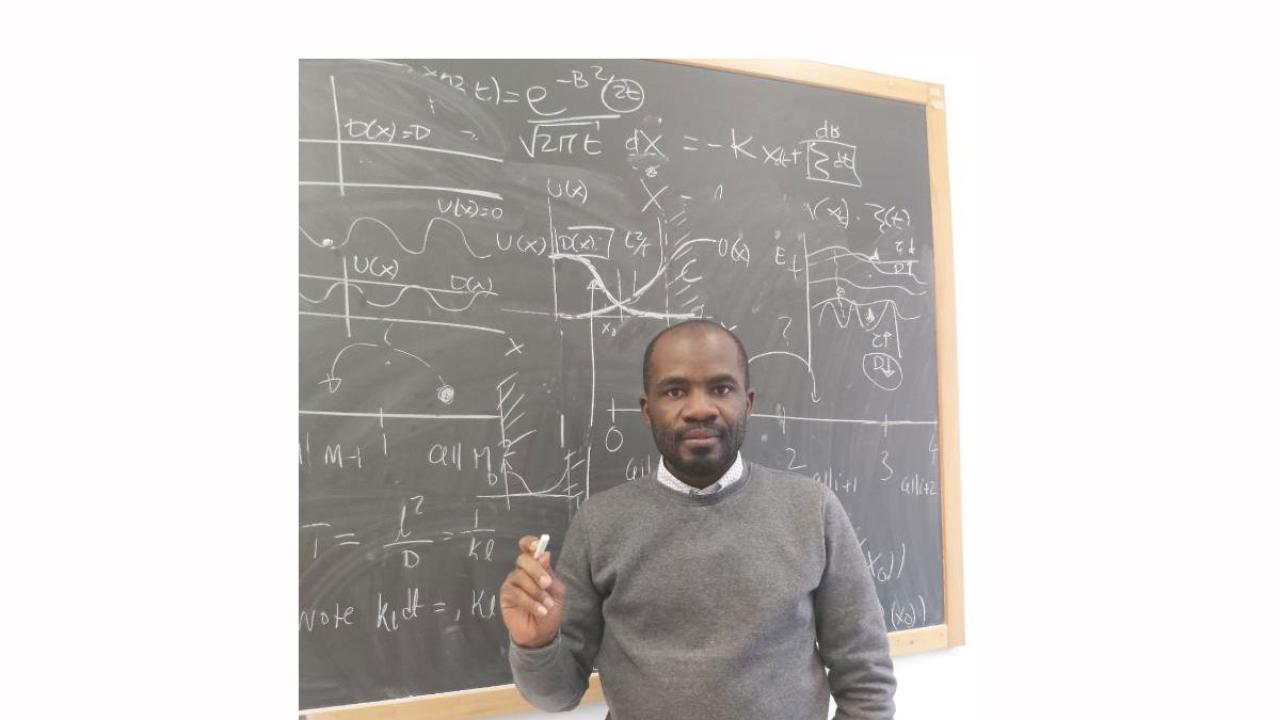
In the world of science, physics and medicine may seem like two separate, distinct fields. Yet, a remarkable success story emerges from the heart of Africa, showing how the seemingly non-concrete realm of physics can have a direct impact on solving health issues. This story challenges the misconception that physics remains confined to abstract theories, highlighting its crucial role in addressing real-world challenges and changing lives.
Meet Daniel Madulu Shadrack, an ICTP alumnus from Tanzania, whose educational journey breaks down the traditional boundaries of academic disciplines. Trained as a chemist at St. John's University of Tanzania, and later at the University of Dar es Salaam, Shadrack harbored a passion for computational studies and drug design. “My fascination with computational drug design dates back to my undergraduate years,” says Shadrack. However, his pursuit of this passion was met with challenges as he discovered limited opportunities for further exploration during his academic studies. In Africa, there was no possibility to delve into this scientific realm.
It was precisely at this time that ICTP emerged as a key point in his journey. “I established a connection with ICTP through ICTP scientist Ali Hassanali. He visited Tanzania for a scientific event at the University of Dar es Salaam, where he gave a talk,” recounts Shadrack. During this event, Hassanali was introduced to Professor Mubofu, Shadrack’s former MSc supervisor, allowing Shadrack to establish contact with Hassanali. “Hassanali read my master’s thesis and thought that I could be a potential candidate for the ICTP Diploma and PhD Programme. Our first face-to-face meeting occurred in Sudan toward the end of 2016, during which he sponsored my attendance at a workshop on atomistic simulation. This workshop marked my initial exposure to computational and atomistic simulation. Moreover, Ali proposed to supervise me, and this marked the beginning of my journey with ICTP. Through its STEP programme, I pursued both the Diploma Programme and a PhD.”
Shadrack moved to Trieste, where he would begin his PhD in the field of computational biophysics at ICTP/SISSA and the Nelson Mandela African Institution of Science and Technology (NM-AIST), Arusha, Tanzania under CREATES-FNS sponsorship. This represented the transition from being a dedicated chemist to evolving into a biophysicist; it was a profound turning point in his academic and professional life. During his first year in Trieste, Shadrack audited the courses of ICTP's Diploma Programme to fill in his knowledge gaps while simultaneously enrolling in the first-year courses of his PhD at SISSA. “The first six months were tough because I had to do a lot of math and physics courses, I had to learn the basic courses that could help me become a biophysicist,” remembers Shadrack. He successfully completed his studies to become a computational biophysicist.
His research scope extends to using physics principles to address inquiries in the fields of medicine, chemistry and biology. Specifically, his research focuses on using atomistic simulations, including molecular dynamics simulation, free energy calculations, as well as advanced sampling methods like metadynamics. These techniques are synergistically combined with cheminformatics and machine learning approaches to uncover and conceptualize novel drug compounds.
Back in his home country, Shadrack embarked on an entrepreneurial path that enabled him to make a tangible impact in healthcare. Shadrack, fueled by his father's ordeal with and the community's battle against prostatic disorders, established iPhytos, a biotech startup dedicated to utilizing in silico (computational)-driven AI technologies to expedite drug development and tackle pressing community health issues. “In the initial stages, comprehending how computers can be harnessed for drug design and accelerating discovery, as well as understanding the speed at which medications can be obtained through biophysics technologies, posed significant challenges. These questions often proved perplexing for the broader community. However, a select few recognized and embraced these concepts. A lack of funding presented an additional obstacle,” says Shadrack. “Fortunately, driven by our internally developed pipeline, we are currently advancing a medication towards clinical trials. One medicine has been earmarked for this critical stage, a significant milestone that bodes well for the startup's trajectory.”
iPhytos has set clear goals, such as bridging the gap between academia and the industry, and educating and training scientists. The startup's mission revolves around supporting fundamental science and offering community-oriented solutions. “Efforts are underway as we forge Memorandums of Understanding (MoUs) and Agreements (MoAs) with universities within Tanzania and beyond its borders, while also establishing collaborations with diverse research institutions worldwide,” states Shadrack. To fulfill this vision, they are facilitating student internships and hosting visiting research fellows for short-term periods. In tandem, they are engaged in the development of medicinal products that directly address pressing community health challenges.
Recently, Shadrack joined the NM-AIST through CREATES-FNS as a postdoc research scientist to establish biophysics research with the goal of discovering and developing novel antimalarial drugs. "Through the integration of Biophysics and AI/ML, we aspire to develop antimalarial drugs from natural products," he explains.
“I realized that there are many other people in Africa who may have the same desire to study in this field, but they don’t have the place to be trained. That’s why, in collaboration with CREATES-FNS, the African centre of excellence hosted at NM-AIST and ICTP (OEA and PWF programs), I started organizing biophysics schools throughout the continent, bringing many scientists from institutions like ICTP, SISSA, and various parts of the world. We have students actively participating in our courses and this reaffirms our commitment to this enterprise. Together, we are doing great things,” concludes Shadrack.
















